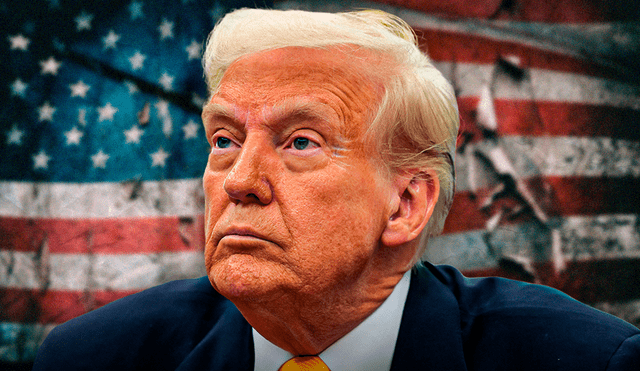US stocks fall after Trump's possible recession announcement
U.S. President Donald Trump did not rule out the possibility of a recession, responding to concerns about economic slowdown indicators. In an interview with Fox news, Trump stated, “I hate predicting things like that. There is a transition period. It takes some time”.

These remakes come amid the implementation of new tariff policies by the Trump administration, which have raised concerns among financial markets and investors. The president has defended these measures as necessary to bring wealth back to the United States, despite potential short – term consequences. The uncertainty surroanding these policies has led to significant volatility on Wall Street. The down jones index has seen notable drops in recent sessions, losing over 3% in the last two trading days, while the S&P 500 has shed $ 3.6 trillion in market capitalization over the past two weeks.
The most affected sectors include manufacturing and technology, which have seen stock values decline due to rising costs and reduced demand. Companies like Tesla have suffered significant losses, impacting the fortunes of business leaders like Elon Musk. Whohever, U.S tariff measures. Internationally, U.S tariff measures have prompted from other countries. For instance, Canada has announced retaliatory tariffs on American products, potentially escalating trade tensions and further affecting the global economy.
Trump Acknowledges Economic Uncertainty but Avoids Predicting a Recession
The urcentainty surroanding Trump's policies has triggered notable volatility on Wall Street. The dow Jones industrial average has experienced sharp declines, dropping over 3% in the last two trading sessions, while the S&P 500 has lost approximately $3.6 trillion in market value in just two weeks. Investors are reacting to concerns that the administrations agressive tariff strategies and regulatory changes could stifle economic growth rather than stimulate it. The technology and manufacturing sectors have been particularly hard hit, with major companies like Tesla seeing significant drops in stock value. This volatility has also affected global markets, with European and Asian exchanges reporting similar downward trend
Beyond the stock market, the broader economy is showing mixed signals. While job creation remains strong, consumer confidence has started to waver amid fears of higher prices and reduced purchasing power. Inflation remains a pressing issue, forcing the Federal Reserve to weigh further interest rate hikes, which could slow down economic expansion. Additionally, global trade tensions continue to escalate, with countries like Canada and China implementing retaliatory tariffs on American goods. These economic headwinds have fueled speculation among economists that a recession could materialize in the coming months if policy adjustments are not made to stabilize the market and restore investor confidence.
The Fed’s Next Move: Can Interest Rate Policy Prevent a Recession?
As concerns over a potential recession grow, all eyes are on the Federal Reserve and its next moves regarding interest rates. The central bank has been walking a fine line between controlling inflation and avoiding excessive tightening that could stifle economic growth. Recent data suggest that inflation remains stubbornly high, forcing the Fed to consider additional rate hikes despite fears of an economic downturn. Some analysts argue that a more balanced approach is needed, urging policymakers to provide clearer guidance to prevent further market instability. Meanwhile, businesses are already feeling the pressure, with some corporations delaying investments and hiring due to economic uncertainty.
The potential for a U.S. recession extends beyond national borders, as global economies remain deeply interconnected. Countries that rely on American trade and investment, including key partners in Europe and Asia, are closely monitoring the situation. A slowdown in the U.S. could trigger economic contractions worldwide, leading to lower exports, weaker currencies, and further market turbulence. Meanwhile, political leaders are preparing for potential fallout, with policymakers in the European Union and China exploring strategies to mitigate the risks of an American downturn. If recession fears materialize, it could become a major topic in the upcoming U.S. elections, influencing debates on economic policies and financial regulations.











